
A majority of Canadians are looking for an economic transition and there is a cross party consensus for many items. This is the finding of a new INNOVATIVE online poll conducted by INNOVATIVE from August 6th to August 11th, 2021, with a weighted sample size of 1,200 Canadian residents.
Just over half of Canadians (53%) believe the pandemic shows we need to radically transform our economy to work differently. Framed this way, New Democrats are most supportive (69%) while Conservatives are the least (42%). However, when we look at specific initiatives, the gap between partisans often narrow. To help simply for analysis, we grouped initiatives by patterns of support revealed through factor analysis.
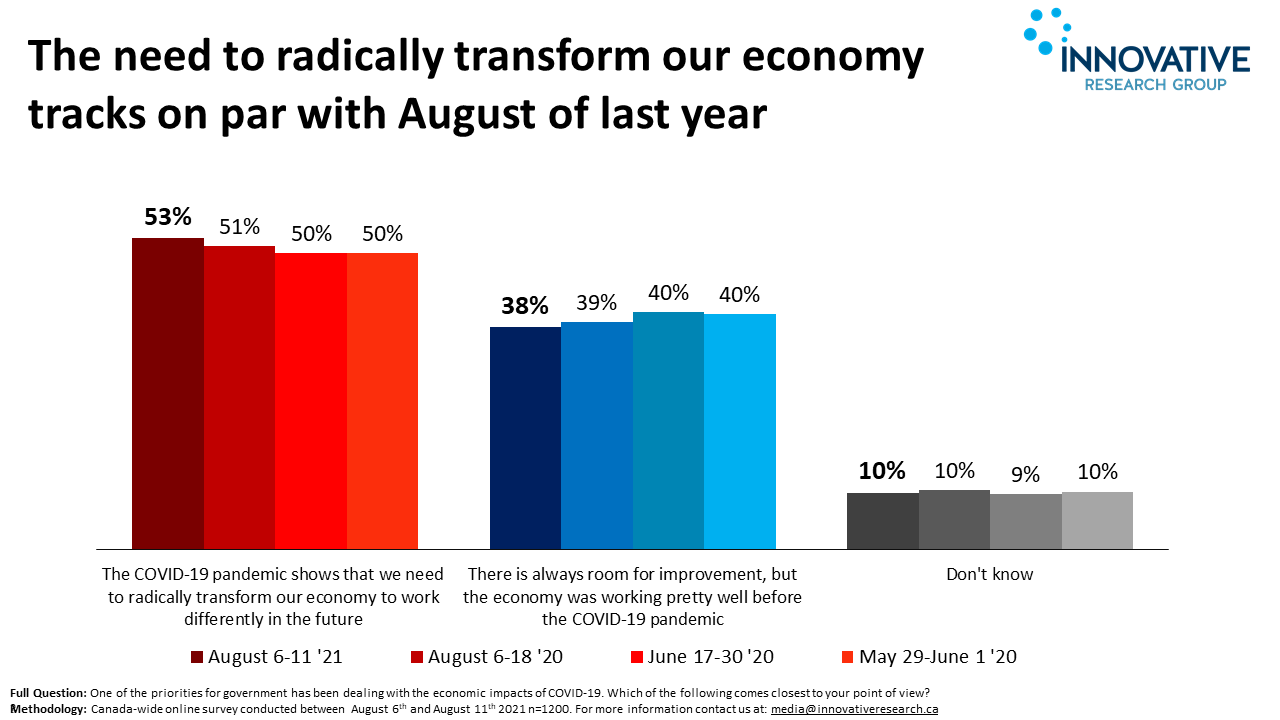
One set of initiatives that unite Canadians are a series that combine increasing support for workers and providing improved social services. People who supported one of these items were very likely to support all the others. Those items include:
- More than 4-in-5 (84%) favour increased support for mental health with only small differences across supporters of different parties.
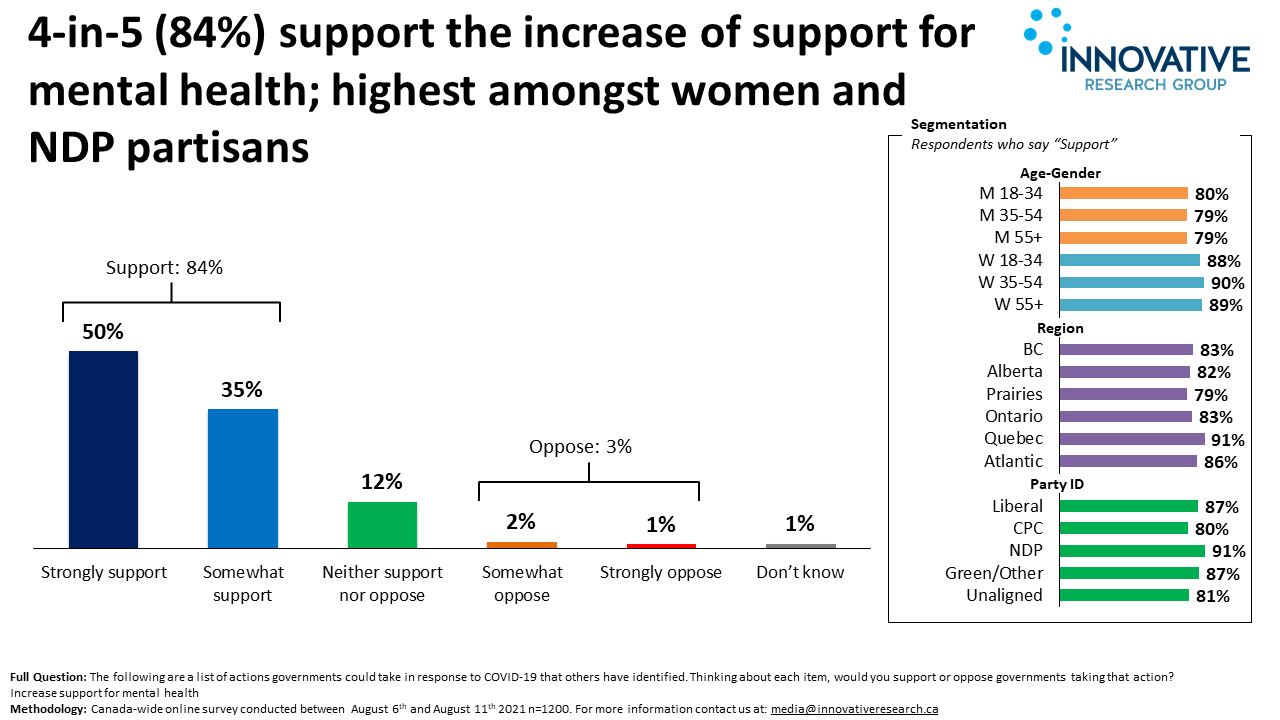
- More than 4-in-5 (83%) want to require access to sick leave to all workers. Conservatives are a little lower but still have 74% support.
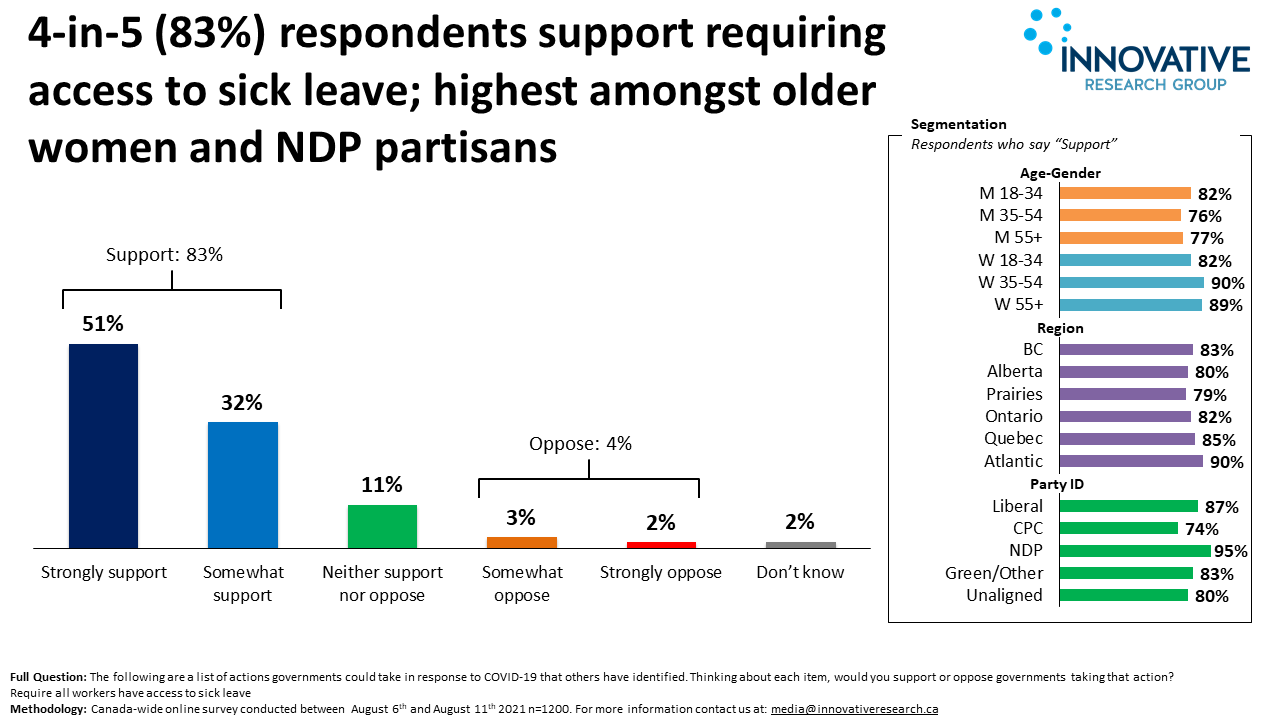
- Three quarters (75%) support increased healthcare spending with no major differences across parties.
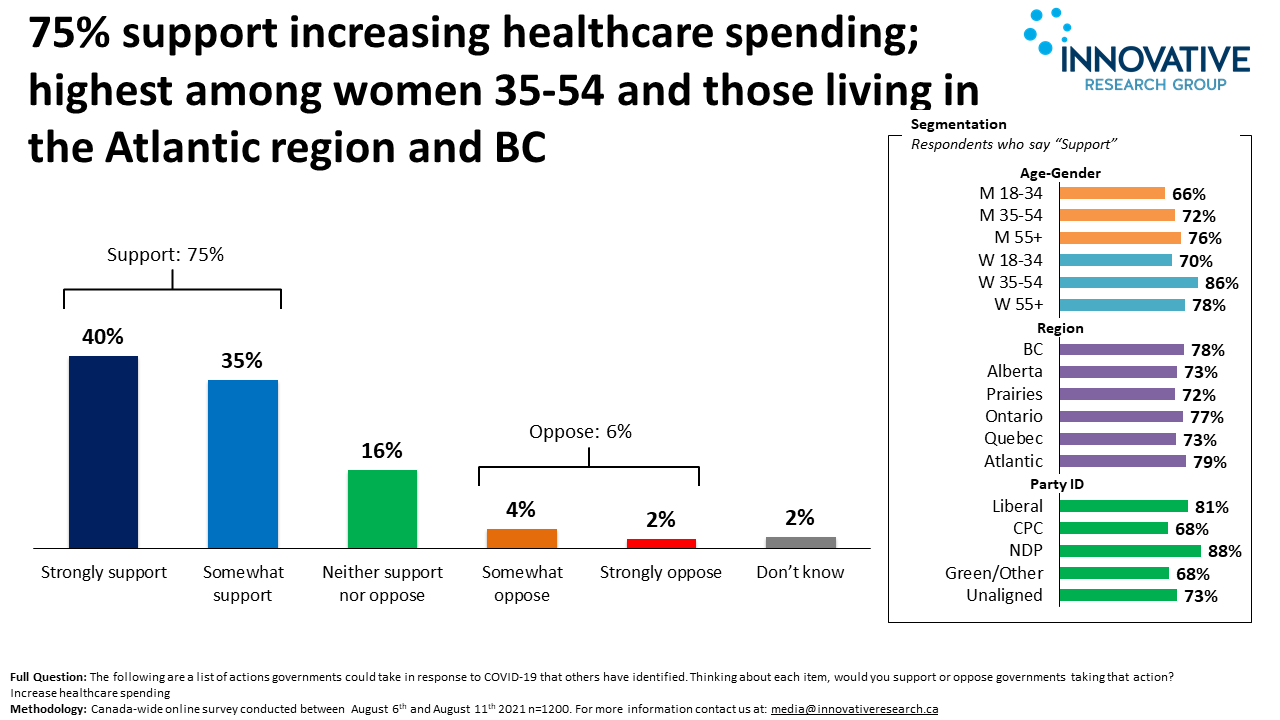
- Three quarters (74%) support increased pay for essential and service sector workers. There is less support for increased pay among CPC voters, but still majority support at 59%.
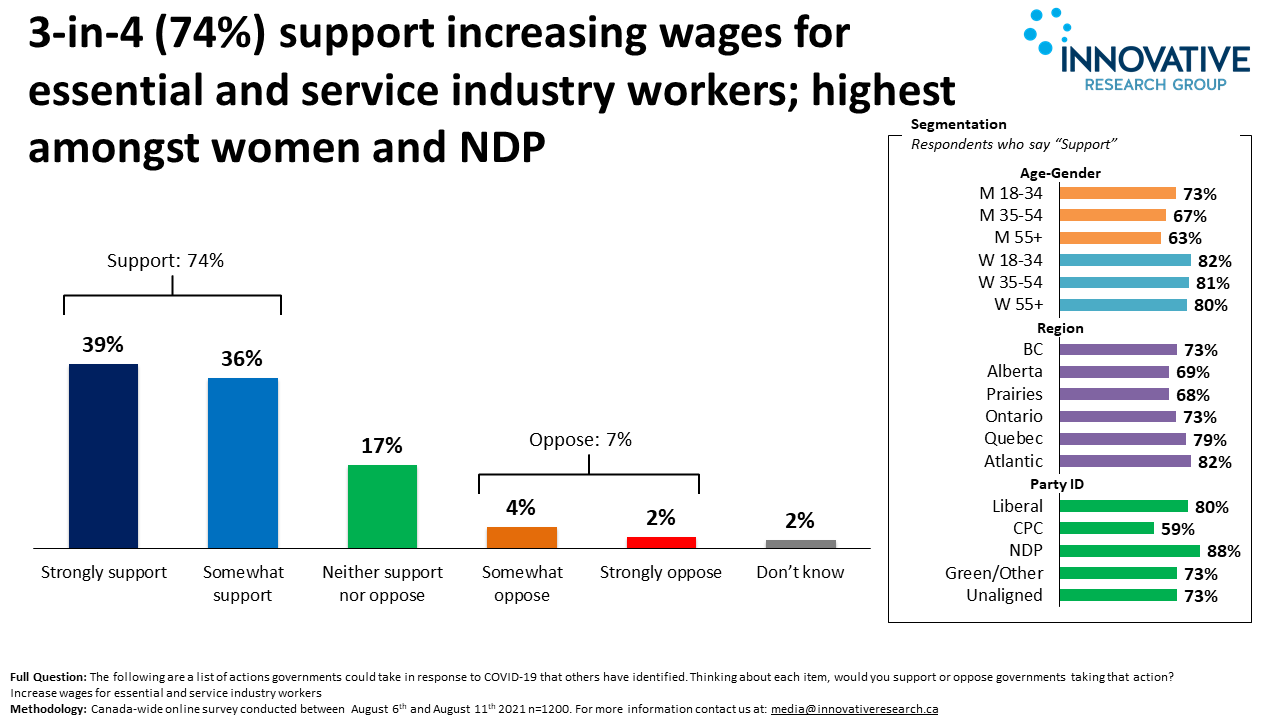
- Seven-in-ten (71%) support improved access to affordable daycare. There is less support for improved daycare among CPC voters, but still majority support at 58%.
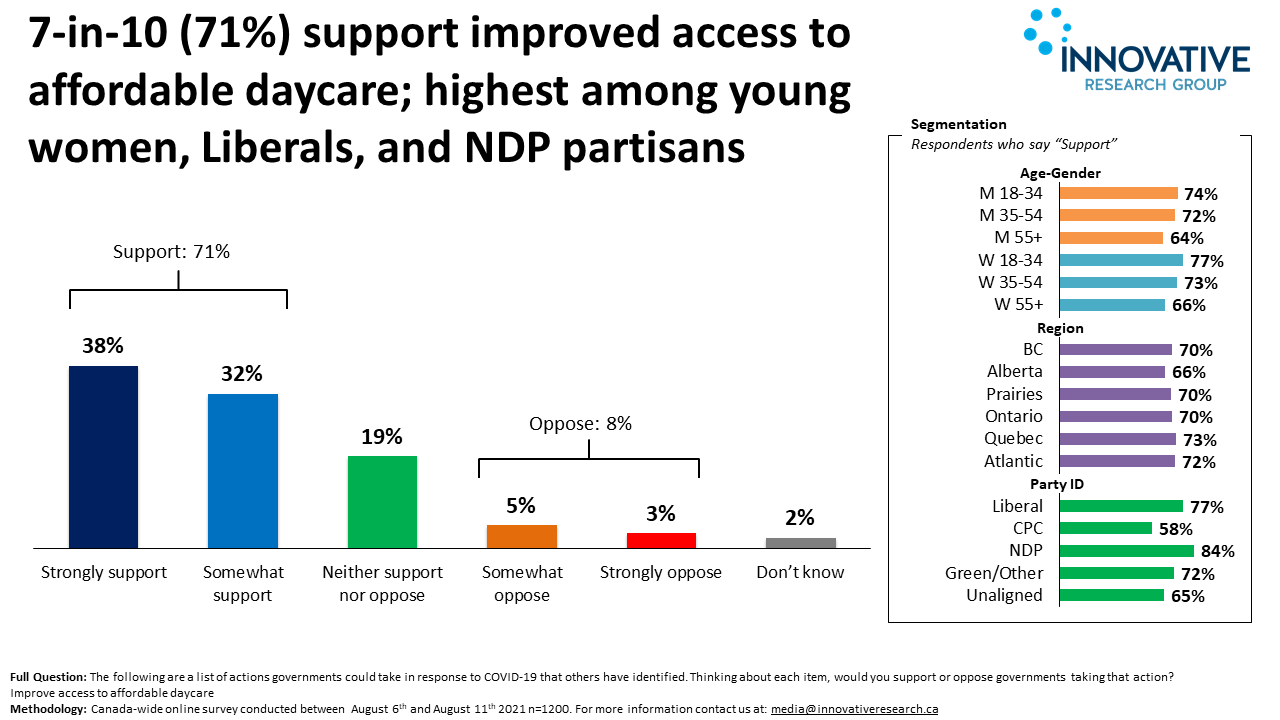
- Two thirds (68%) support an increase in the minimum wage. Even a bare majority (50%) of Conservatives support this item.
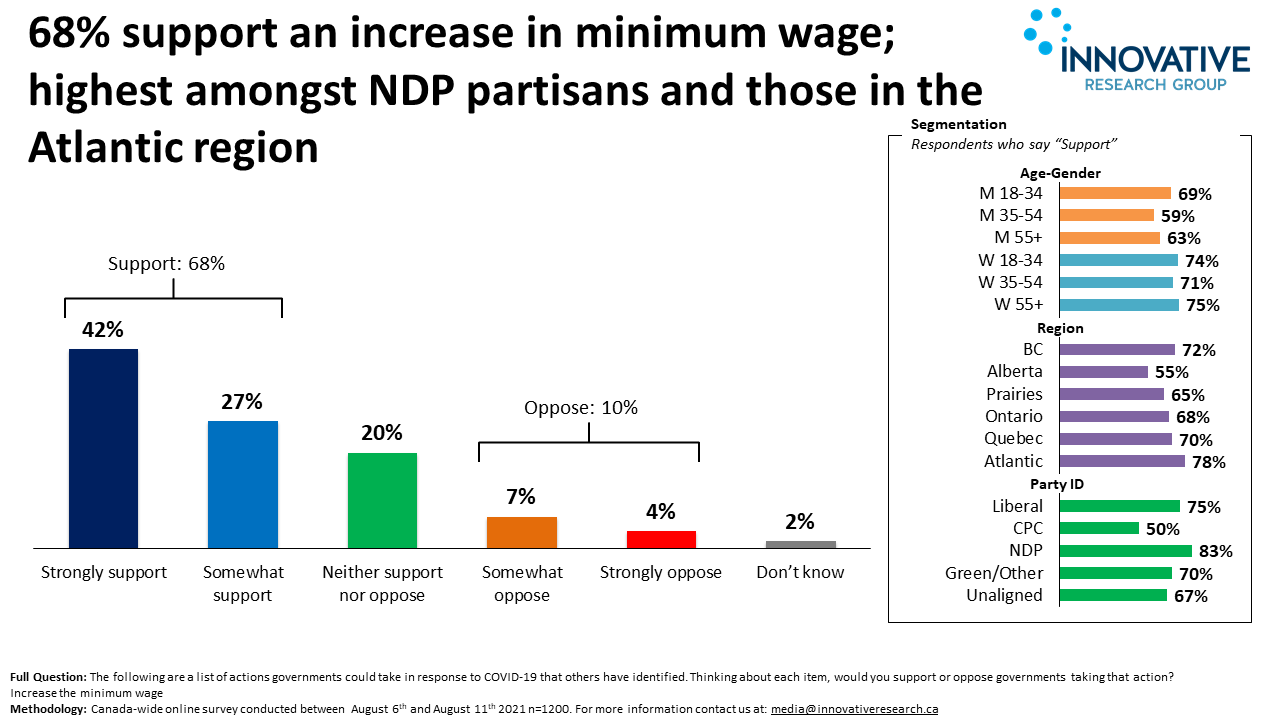
Another group of initiatives that enjoy cross-party support is increased Canadian self-reliance. Increased Canadian manufacturing of medical goods enjoys 85% support with no significant differences across partisans. The same is true of reducing our dependence on imports of essential products such as PPE with 78% support.
There are also items that are more divisive.
One group of initiatives involve a shift away from capitalism towards more redistributive policies:
- The most popular of these items is increasing taxes on the wealthy at 73% support. As expected, NDPers are most supportive at 86%. However, even among Conservatives, 58% support raising taxes on the wealthy.
- Almost 6-in-10 (59%) support Introducing a Universal Basic Income. NDPers (74%) and Liberals (67%) show quite strong support but only 38% of Conservatives support it.
- Just over a third (35%) would move away from capitalism. A major of NDPers (57%) support this idea but Liberals (37%) and Conservatives (19%) have much lower levels of support.
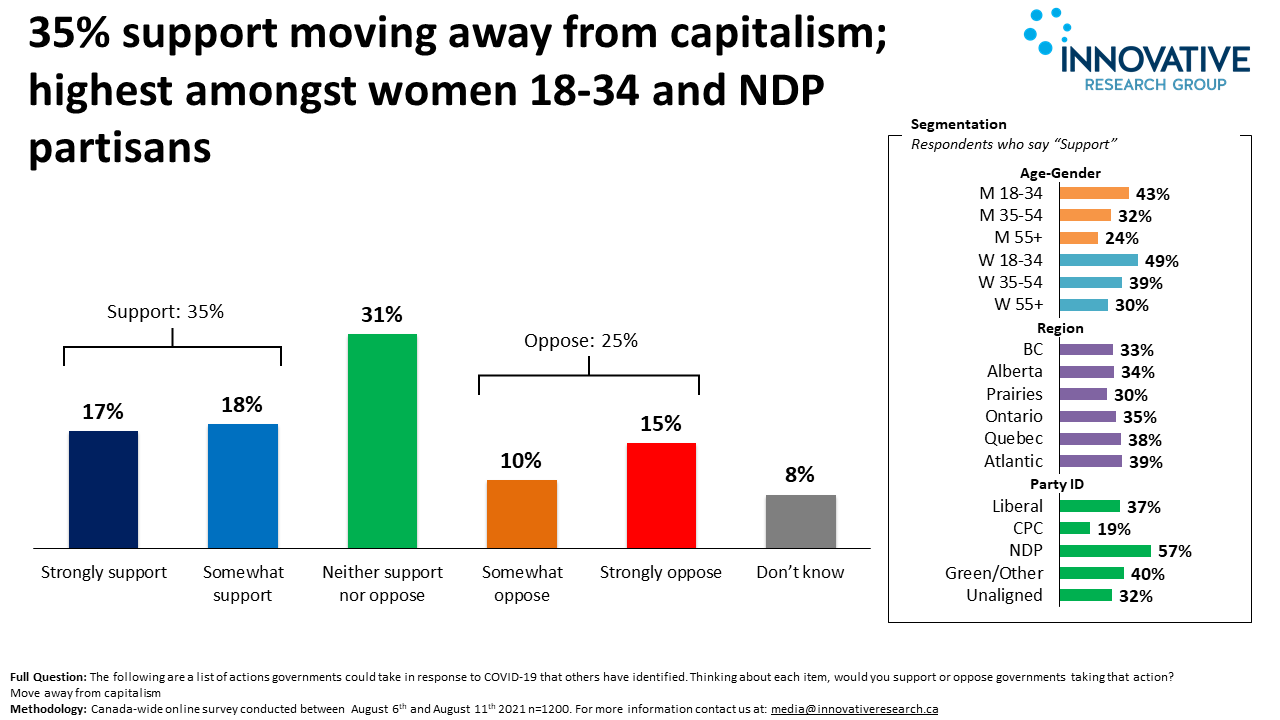
A second divisive group are more conservative oriented items:
- Just over 6-in-10 (62%) support lowering taxes. Majorities of all partisan groups support cutting taxes with the Conservatives highest at 72% and the Liberals lowest at 55%.
- Only 35% favour increased support for oil and gas. Only Conservatives provide majority support (60%).
Attitudes on spending stand on their own. Almost 6-in-10 (59%) support beginning to reduce the amount of extra government spending on COVID-19 measures. Conservatives are most supportive (76%), Liberals mildly so (55%), and New Democrats the least (49%).
At 65% support, opinions on a transition to a green economy also stand apart from other initiatives. In this case all partisan groups except the Conservatives support the ideas ranging from Unaligned voters at 61% to Liberals at 77%. A green transition only has support from 43% of Conservatives.
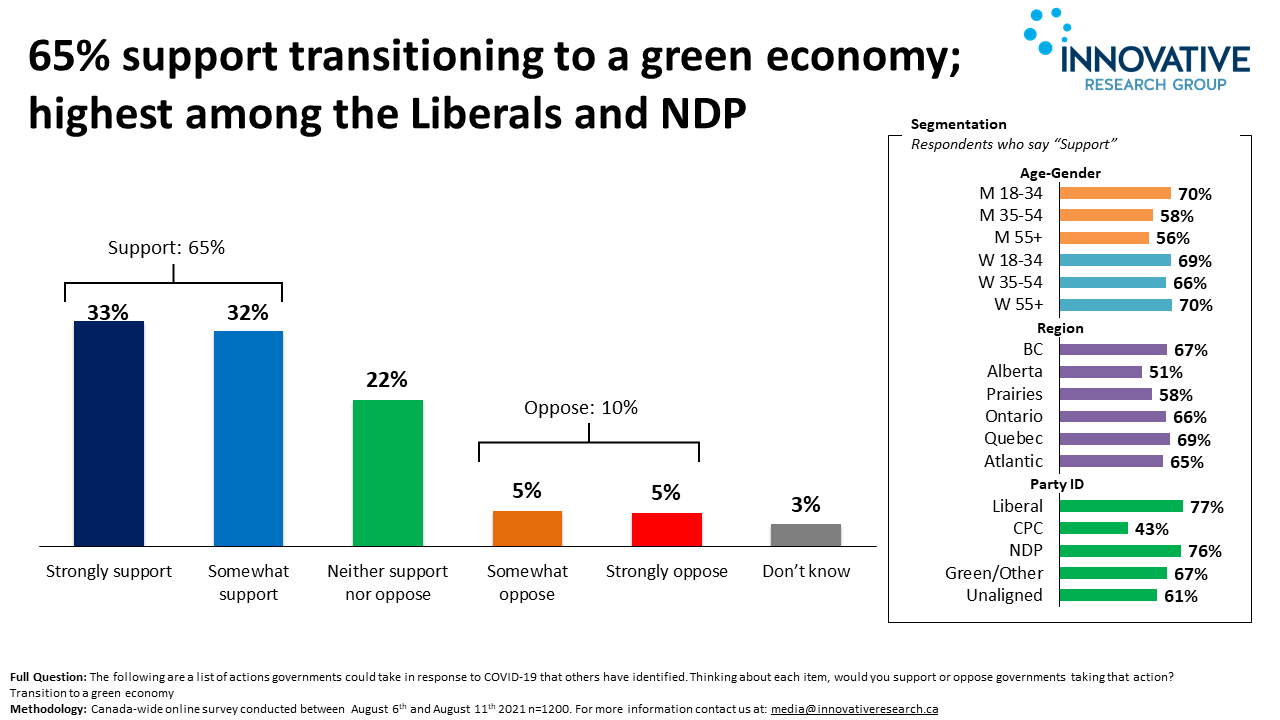
The bottom line is that there is a broad Canadian consensus that it is time for a kinder and gentler version of capitalism in Canada. That consensus includes Conservative voters. That consensus frays as ideas move more directly to moving away from capitalism to a more redistributive system. Developing a greener economy carries most partisan groups but loses the support from a majority of Conservatives.
This is clearly a challenging environment for the Conservatives. The Liberal Throne Speech and Budget embraced this move while the NDP are making the point that if Canadians want different outcomes, they need to make differences. If the ballot question in this election is “how does Canada rebuild better?”—the key risk to the Liberals seems to be coming from the NDP, not the Conservatives.




































